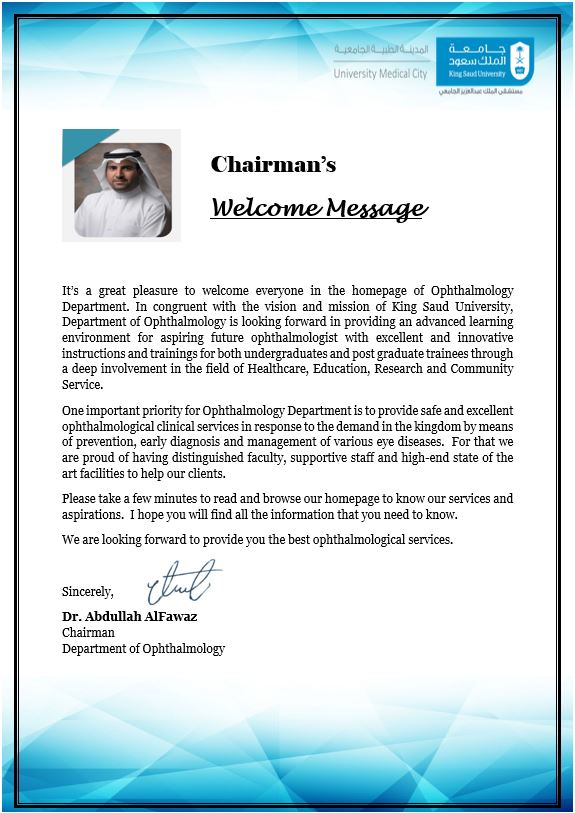Research
Chairman Message:
It’s a great pleasure to welcome everyone in the homepage of Ophthalmology Department. In congruent with the vision and mission of King Saud University, Department of Ophthalmology is looking forward in providing an advanced learning environment for aspiring future ophthalmologist with excellent and innovative instructions and trainings for both undergraduates and post graduate trainees through a deep involvement in the field of Healthcare, Education, Research and Community Service.
One important priority for Ophthalmology Department is to… المزيد
The responsibility of the administration is concerned with implementing all regulations, systems and issuing internal decisions required for the proper functioning of work. It also provides supervision and follow-up on the performance of all administrative and financial work in the College according to the rules, regulations, and instructions of the university. It applies administrative quality standards in line with the college’s objectives and the strategic plan.
There are four executive units under the college administration chain according to the organizational structure of College of Medicine - Female Students Campus, which are as follows:
- Financial and Purchase Affairs Unit
- Personnel Affairs Unit
- … المزيد

















